Program
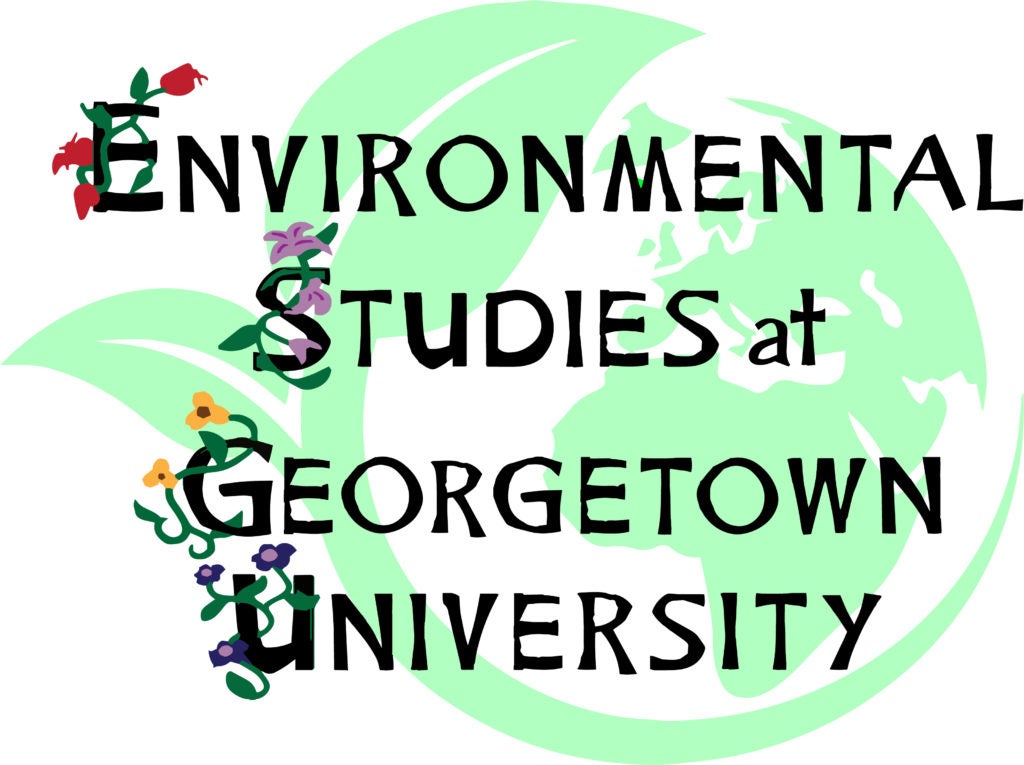
The Environmental Studies (ENST) minor is available to students university-wide (College of Arts & Sciences, School of Foreign Service, McDonough School of Business, School of Nursing, School of Health). Course options are listed below. The ENST requirements are three core courses, three elective courses (including cross-listed classes), and an approved capstone project.
Declaring the Minor
To pursue the Environmental Studies minor, please complete the ENST internal online form , and then we will schedule an appointment with you. (Following program approval, you can formally declare the minor by completing this form in the College, or emailing your Dean in the other schools.)
Core Courses
The three courses below comprise the foundational requirements for the ENST Program [note that we may consider substitutes for 2220 and 2240 on an exceptions-only basis, in cases where exigencies (e.g., course capacities, scheduling conflicts) are involved].
ENST 1110: Environment & Society (seniors by permission) (SP24 Faculty: Randall Amster & Anneliese Palmer)

This foundational course surveys the field of environmental studies, covering theories and applications in the realms of science, policy, and humanities. What are the most pressing environmental issues today, and how have they developed over time? How are social and political issues influenced by the environment, and how is the environment impacted by human societies? Looking at spheres including food, water, energy, and climate, this course draws upon a wide of array of resources and materials to engage environmental challenges and highlight possibilities for transformation. The course will also include a community-engagement component with various local partners. The class is required for ENST minors, but is open to students from across the university interested in the nexus of environmental and social issues.
ENST 2220: Issues in Environmental Science (SFA designation) (see ENST 1120 below)
This course will introduce students to patterns and processes in the natural world and their modification by human activity. Students will be introduced to the Earth’s “spheres” — the atmosphere, hydrosphere, lithosphere, and biosphere, which make life possible — and will examine the ways in which human activities are perturbing these spheres. Specific topics to be covered may include energy, population, global climate change, and air and water pollution. Students will gain the skills necessary to understand some of today’s most pressing environmental issues by examining scientific principles and the application of those principles to natural systems. Because environmental science has always been an applied science, we will also explore practical approaches for solving these problems — including lectures, discussions, films, hands-on exercises, demonstrations, field trips, community engagement, and more.
ENST 2240: Issues in Environmental Justice (SP24 Faculty: Randall Amster; DIV designation)
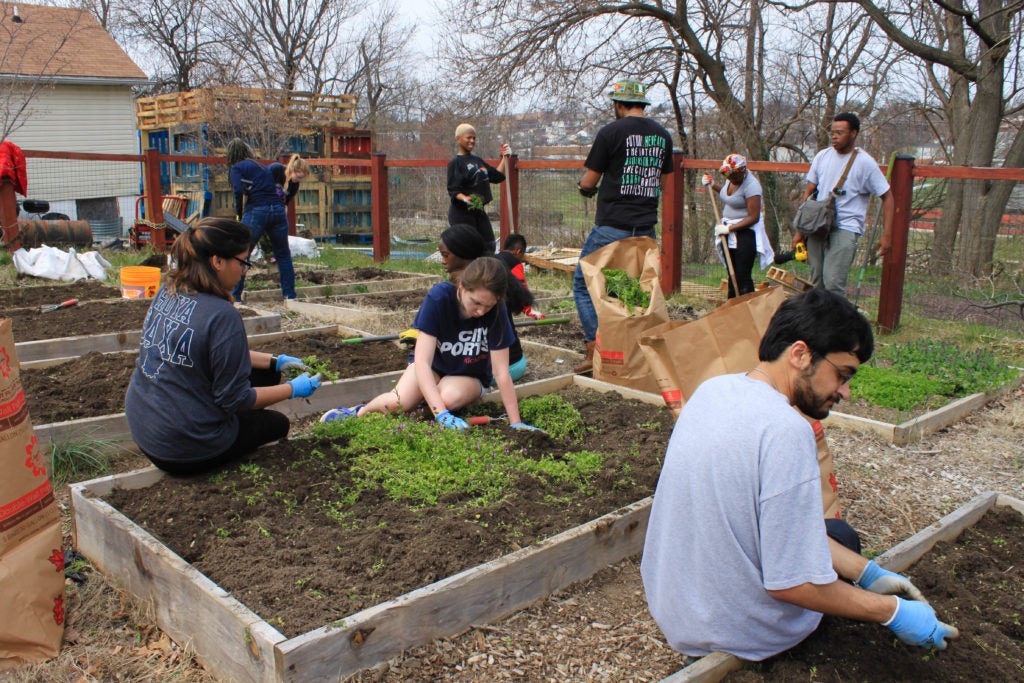
Environmental issues impact our lives from matters of personal health to global warming, and all points in between. While in an ecological sense it might be said that environmental issues know no borders, in social, historical, and political terms the compartmentalization of opportunities and impacts is more pronounced. How are environmental benefits and burdens distributed in society, both within and among nations, and what factors influence these patterns of distribution? In this course we will look at problems of justice as they intersect with environmental concerns, including food deserts and waste facilities to climate displacement and loss of arable lands. At the same time, we will explore various forms of environmental activism, from protests and community organizing to international networks and cutting-edge policy initiatives. The aim is to examine baseline ethical challenges of environmental justice through both theoretical and applied lenses, which may include historical and contemporary case studies.
Elective Courses
Program electives will rotate on a semester-to-semester basis; students can also select courses that are cross-listed with ENST, or petition the Program to approve a course that is not listed (this includes prospective Study Abroad courses for ENST minors, for which we can accept up to one full-course equivalent as an approved elective). The Program requires three elective courses or nine total credits of electives, which may include Core Pathways modules or similar. (Courses listed below are all 3 credits unless otherwise noted.)
ENST 1120: Environmental Science for a Changing World (SP25 Faculty: Angela van Doorn) (SFA designation) (note: will count for ENST minors as equivalent/substitute for ENST 2220)
This course will examine the scientific process, principles, and methodologies required to understand the interrelationships of the natural world; we will identify and analyze environmental problems and evaluate potential solutions for resolving or preventing these issues. Specific topics will include ecosystem resources, biogeochemical cycles, freshwater resources, environmental health, ecology and evolution, biodiversity and conservation, food resources, and climate change. This course will employ a range of teaching methodologies (e.g., lectures, discussions, and case studies), complemented by research activities on campus.
ENST 1141: Biodiversity & Climate Change: (Core Pathways: 1.5 credits; SFA designation) (will be offered second half of FA24)

This 7-week course will focus on the impacts of climate change on biodiversity. Past climate shifts can give us some insight as to what to expect with our current warming climate. Terrestrial and aquatic species respond to climatic changes by elevational, depth, and latitudinal shifts in their ranges. What is different about this warming period is both the pace of changes as well as pressures facing biodiversity from other human threats such as habitat destruction and overexploitation. According to the Millennium Ecosystem Assessment, climate change is likely to become one of the most significant drivers of biodiversity loss by the end of the century. This course will examine how biodiversity is responding to climate change. In doing so, we will build upon current scientific understanding of evolution and ecology and explore conservation and management strategies that maintain and restore biodiversity. Students will also develop practical skills analyzing data and communicating science. This course is part of the Core Pathway on Climate Change, in which students pair together two 1.5-credit, 7-week courses and enroll in two modules during the semester (corepathways.georgetown.edu).
ENST 1143: Representations of Extinction (Core Pathways: 1.5 credits; HALC designation) (not currently offered)
As Elizabeth Kolbert outlines in The Sixth Extinction: An Unnatural History , we are currently living in an age of potential mass extinction as a result of anthropogenic (or human-made) climate change. This course examines how the possibility of mass extinction is culturally mediated through literature, nature documentaries, wildlife calendars, zoos, Endangered Species chocolate, and other cultural artifacts. How do we encounter the potential of mass extinction, intellectually, artistically, and affectively? What are the aesthetic forms of extinction, and how do they shape our understanding of the past, present, and possible futures? How do representations of endangered species and vulnerable ecosystems engage with environmental justice and the legacies of imperialism and colonialism? What ethical questions emerge as writers and artists confront the loss of biodiversity?
ENST 1145: Climate Storytelling (Core Pathways Module A: 1.5 credits) (not currently offered; HALC designation)
Telling and sharing stories, from the scientific to the personal, is key to understanding climate change and advocating for action. With Sweden appointing the world’s first Chief Storyteller for Climate Change and researchers calling for a climate storyteller in every city, there is a global demand for trained communicators. This course will combine class discussions on climate discourse research with hands-on science communication practice. Through public speaking and visual storytelling exercises (including at locations around DC), students will learn how to craft and share surprising, dramatic, and inspiring climate stories.
ENST 1146: Climate Action: Stories that Create Change (Core Pathways Module B: 1.5 credits) (not currently offered; HALC designation)
Stories about the rising occurrences of extreme weather, looming resource scarcity, and unprecedented social upheaval spawned by climate change flood the media landscape. Often missing from these stories are the practical actions needed to change the trajectory of a climate crisis that threatens to upend the world as humans have come to know it. This course will examine a combination of mitigation and adaptation tactics that present both significant obstacles and opportunities for the innovation required to solve this pressing global issue. Through a combination of class discussions on these tactics, examples of implementation, and principles of how to encourage the will to take action, this course will use in-depth storytelling techniques for students to practice their role in creating effective strategies that lead to climate action. Students will learn how to craft and share stories that go beyond experiences of crisis and tangibly develop narrative strategies to convince governments, businesses, and communities to take action addressing climate change.
ENST 1147: Forests, People, & Climate Change (not currently offered; HALC designation)
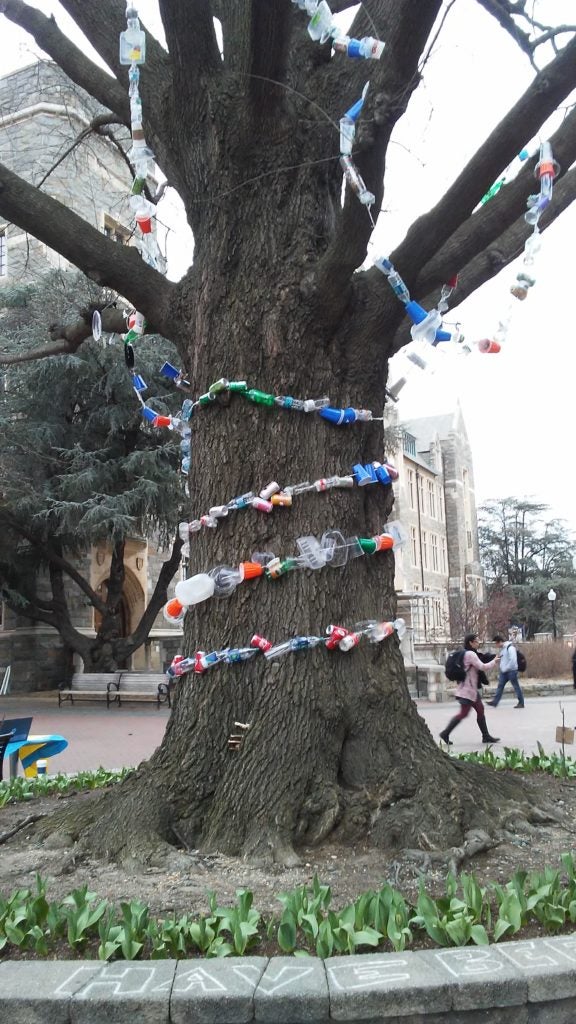
The role that forests and trees play in popular American consciousness, society, and culture has evolved dramatically over time. This course will explore that evolution — from a young country that felled millions of acres of old growth trees to facilitate westward expansion, to a modern-day nation grappling with catastrophic wildfires and forest management controversies, all set against the background of a warming climate. Where we once tried to wall off untamed forests from human settlements, and authors warned of the dangerous animals therein, Americans grew to desire communities ringed by wild lands, and now actively seek out encounters with wildlife. While we have a rich and storied history with our forests, our relationship with trees today is changing more than ever in light of climate change. As the planet continues to warm, forests that are adapted to periodically regenerate with fire are now burning more often, more severely, and more uncontrollably; these blazes were once considered a minor nuisance relegated to the backcountry, but are now burning through subdivisions in the suburbs of major cities. Throughout this historical transition in the American mindset, authors, artists, and other cultural leaders have been there to document the progression in the country’s attitudes, from Thoreau’s Walden and the Hudson River School of painters, all the way through Richard Powers’s Overstory (winner of the 2019 Pulitzer Prize for literature). Indeed, whether we cut them down for lumber, protect them for wildlife, plant them to sequester carbon, or watch them burn in a wildfire, forests have always been inextricably linked to our national character. This course will examine that connection, both historically and in light of the immense present-day challenges associated with climate change. We’ll rely on a variety of resources, ranging from award-winning books to TED talks from obscure scientists, to guide our learning and help us understand how a nation of millions relates to and manages the one-third of the country’s landscape that is covered by forests.
ENST 1161: Urban Foraging & Ecology (cross-listed with BIOL) (1 credit) (not currently offered)

We will meet weekly throughout the fall semester, to span the fall foraging season, harvesting pawpaw fruits in September, collecting persimmons, beech nuts, and acorns in November, and enjoying a range of edible leaves, stems, flowers, fruits, and seeds in between. In this one-credit course, we will learn to recognize a range of edible, useful, and poisonous plants in the DC area, and along the way will delve into relevant topics in botany and plant ecology. (And no, we will not be collecting or eating mushrooms!)
ENST 2242: Environmental Action Workshop (FA23 Faculty: Kerry Danner) (1 credit)
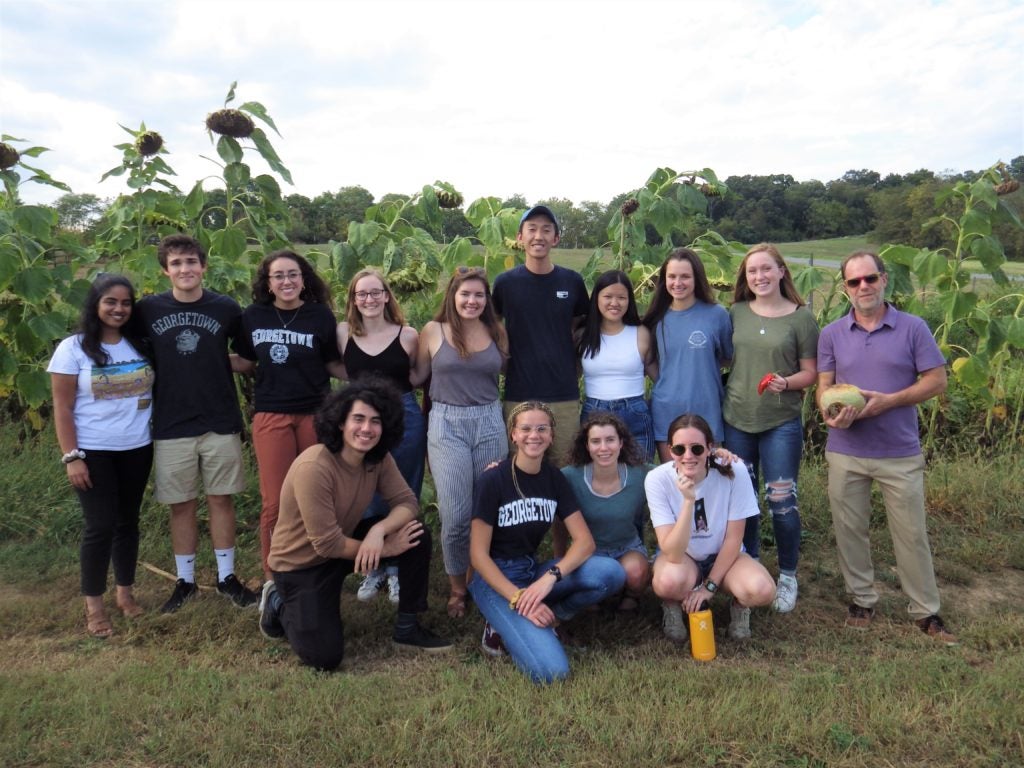
This project-oriented course will operate in conjunction with various community partners to help address food, environmental, and climate justice issues in DC and the region. Students will work collaboratively on various projects potentially including food recovery, community gardens, cooperative initiatives, mapping, and other methods of addressing core issues of access and equity across a range of environmental concerns. Readings and assignments will emphasize areas including community engagement, participatory research, experiential learning, project design, and impact assessment.
ENST 2260: Environmental Health: Saving the Planet, Saving Lives (not currently offered; DIV designation)

This course will explore how the environment impacts health across the lifespan with special attention to those populations most vulnerable to illness from exposure to pollution, chemicals, and/or contaminants. Evidence will be examined for a wide range of exposures (e.g., chemicals, metals), exposure pathways (vectors, water, air, soil, housing) and health outcomes (e.g., neurodevelopment disabilities, cancer, asthma). Public health approaches to protecting populations through policy initiatives will be a focus for all exposures and health outcomes. We will also explore the healing aspects of positive environments such as nature.
ENST 2280: Bugs & Fungus Among Us (FA24 Faculty: Leah Buchman)
Sometimes the smallest organisms on our planet can have the biggest impact. Insects and fungi play a vital role in nature, which is crucial for other organisms, including humans, to thrive. Cross-disciplinary coursework will explore the roles that these creatures play in the development of human civilizations and cultures, food security, and the environment. Through historical, ecological, culinary, economic, and narrative perspectives we can better understand the vast influence of insects and fungi throughout our world, and how they relate to critical factors such as climate and health. Students will engage in hands-on activities and interactive discussions to uncover the interconnectedness of the insect, fungal, and human worlds across a range of places and societies.
ENST 2290: Environmental Communication (FA24 Faculty: Anneliese Palmer)
In a time of rapid political and environmental change, discussions of critical subjects can become polarizing in ways that render active engagement difficult if not seemingly impossible. How do we talk about environmental issues with diverse audiences, and who has the power to articulate and/or implement their views and platforms? What are the most effective methods for cultivating a dialogue, building a consensus, and mobilizing initiatives for change? This course will consider emerging environmental research and scholarship, the role of media in framing the challenges, and the work of advocacy organizations, focusing in particular on a range of issues that potentially includes narratives of displacement and adaptation, the nexus of urban and rural issues, and messaging by movements and campaigns. In such areas, communication becomes a collaborative effort in which the making of meaning can help foster greater capacities to develop solutions.
ENST 2292: Topics in Marine Conservation (SP24 Faculty: David Shiffman)
The ocean is in deep trouble from threats including overfishing, habitat destruction, pollution, and climate change. While many people care and want to help, many of the best-known solutions to these threats are not the solutions which are most supported by experts and evidence. Complex technical challenges require detailed, data-driven, evidence-based solutions generated by experts, with input and buy-in from all relevant stakeholders. In this course, we’ll discuss the science and policy of ocean conservation. Students will learn what experts believe the most effective solutions to be, and how to spot the many proposed solutions that are too good to be true, through an integrative lens that brings together elements of science, policy, and the humanities. Topics discussed will include sustainable seafood, ocean plastic pollution, marine protected areas, threatened species protections, and more.
ENST 3307: Agriculture & Sustainability (SP24 Faculty: Leah Buchman)

This course is designed as a lecture-discussion to explore topics related to agriculture and sustainability that influence global food security. This course is interdisciplinary in nature touching on environmental science, the economy, innovation and technology, policy, and justice. Defines and applies basic principles of sustainability to address urgent agricultural, environmental, and societal challenges. Students will participate in interactive discussions, investigate current global challenges, and engage in critical thinking to derive solutions to these challenges.
ENST 3370: Ecotopian Visions (SP24 Faculty: Sophie Heller – Core Pathways; HALC designation; SP23 part of BLA program )
From time immemorial people have longed for and sought to manifest human societies that exist in a harmonious balance with the natural environment. Sometimes this takes the form of a pristine Edenic vision of a simpler time, implying that such a paradise may not be attainable in a more complex world. On the other hand, many treatments of these matters cast the project squarely within the framework of contemporary conditions including environmental degradation and sociopolitical conflict, viewing these “ecotopian visions” as a direct response to the challenges and crises emerging in the modern era. From communal experiments and direct-action movements, to vivid literary and visual portrayals, the concept of ecotopia has continued to animate visions and inspire actions. In this course we will pull on these ecotopian strands through works of fiction and nonfiction, film and video, and grounded exploration of communities of practice in the field, seeking to fully appreciate the continuing relevance of a concept that the New York Times once called (in 2008) both “obscure and widely influential at the same time.”
ENST 3380: Technology and the Environment (not currently offered)

What are the environmental impacts of contemporary technologies? How are these technologies being utilized for conservation efforts and environmental organizing? Examining technologies from personal digital devices and cloud computing to drones and geoengineering, this course looks at the resource and waste implications of technology, including energy consumption and carbon emissions. As well, we will explore the ways in which technologies of communication and conveyance are being deployed for ‘green’ purposes such as apps seeking to eliminate food waste and remote sensing devices to monitor protected habitats. Students will engage in projects and experiential opportunities that highlight the environmental challenges of technology, as well as the promise of developments such as ‘conservation tech’. For ENST minors in particular, the course will offer an option to complete the required capstone project.
ENST 4409: Environmental Peacebuilding (SU24 Faculty: Randall Amster; DIV designation)
In a globalized and networked world, the linkages between social and environmental issues are becoming increasingly evident. From climate change and sustainability to resources and economics, scholars and practitioners alike have been bridging the divide between society and ecology. This connection has yielded an emerging perspective suggesting that environmental issues need not primarily be a source of conflict, but rather can offer a basis for promoting cooperation and peace. Environmental Peacebuilding is at the forefront of this transition, constituting both the ecological realm of peace and the peacemaking potential of ecology. Through various theoretical lenses, real-time case studies, and interactive experiences, we will explore this integrative paradigm in terms of its history, its present relevance in concrete settings, and its prospects for transforming the future.
Cross-Listed Courses
Each semester there will be a range of courses across the curriculum that are cross-listed with ENST and designated as pre-approved electives. Some examples of the scope of possible options follow (consult GU’s course schedule for the most current course offerings):
WGST 2247: Population, Gender, & Environment (Faculty: Patricia Biermayr-Jenzano)
WGST 3350: Gender & Sustainability (Faculty: Patricia Biermayr-Jenzano)
ENGL 2266: Introduction to Environmental Humanities (Faculty: Nathan Hensley)
OPIM 2271: Environmentally Sustainable Operations & Business Models (Faculty: Vishal Agrawal)
JOUR 3385: Science and Environmental Journalism (Faculty: Elizabeth Shogren)
ANTH 2225: Environmental Anthropology (Faculty: Nejm Benessaiah)
BIOL 1180: Ecology (Faculty: Jennifer Fox)
STIA 3370: Oceanography (Faculty: Tom Cronin)
STIA 3373: Environmental Policy (Faculty: Jeremy Mathis)
STIA 3396: Environmental Writing for the Public (Faculty: Cynthia Wei)
STIA 3397: Environmental Sustainability and Business Strategy (Faculty: Bill Hahn)
Capstone Projects
The point of the ENST Capstone is to provide an opportunity for further exploration of an issue or theme of particular interest to you. The Capstone will serve as a synthesis of your learning in the program, and can take a variety of forms, which may include: taking an advanced course with a culminating project; engaging in an experiential activity (with documentation and reflection); developing and delivering an engaging environmental curriculum; conducting a significant research project, curated art exhibit, or other publicly presented work; a study abroad course with a culminating project; an internship or community-based opportunity; and more. A compilation of completed Capstone Projects can be found HERE.
The ENST Capstone will be approved by the program directors for each student in the program. In order to propose your capstone, complete the online form and one of the program directors will schedule an appointment with you.
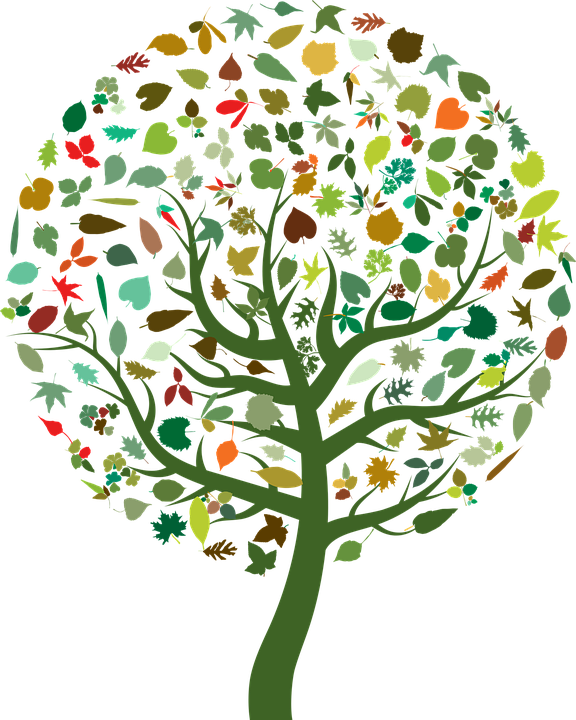
At the end of each academic year there will be a closing symposium in which all graduating students will present their capstone work to the ENST learning community, also featuring a keynote speaker selected by the ENST seniors. Following the symposium there will be a reception for students and their guests. This provides an opportunity to showcase student work, and to honor our graduating ENST minors!
Writing in the Program
The Environmental Studies program places a premium on developing strong writing skills throughout a student’s journey. Every course in the program includes a writing component, emphasizing different forms of writing depending on the content and learning objectives. The introductory course (Environment and Society), for example, typically includes at least four significant writing assignments, including reflections and analytical essays. Core courses including Environmental Science and Environmental Justice, respectively, also entail substantial written work appropriate to those fields. Likewise, the required capstone project entails either a thesis-style paper or a project coupled with a comprehensive wrap-around essay. Through these experiences, we strive to ensure that all ENST students develop strong writing skills.
